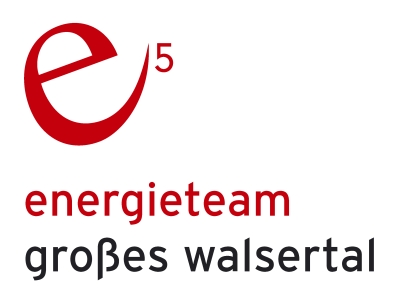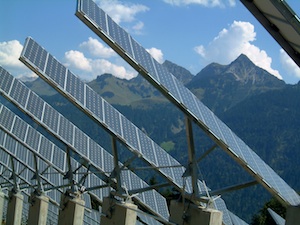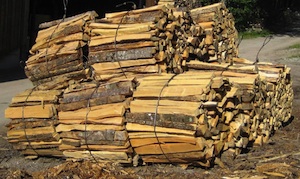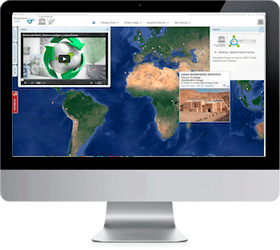Towards 100% power from renewable energy sources and Energy Region
 Six villages within a single alpine valley form the Grosses Walsertal Biosphere Reserve, situated in the western part of Austria. The valley is a prime example of a living cultural landscape, where, since its occupation by the Walser people in the 13th and 14th centuries, a system of highly adapted mountain farming, pasture, and extensive forestry has been developed.
Six villages within a single alpine valley form the Grosses Walsertal Biosphere Reserve, situated in the western part of Austria. The valley is a prime example of a living cultural landscape, where, since its occupation by the Walser people in the 13th and 14th centuries, a system of highly adapted mountain farming, pasture, and extensive forestry has been developed.
With the declaration of the biosphere reserve the inhabitants of the “Walsertal“ contributed to protect the valley “Grosses Walsertal” by applying sustainable and ecologically compatible development. Thus, the fascinating region ensures a high quality of life and living space for following generations. In doing so, a future proof energy production with renewable energy sources plays a major role, with regard to the increasing global warming and the limited supplies of fossil fuels.
The goal is clearly defined: 100% power from renewable energy sources and 100% regional energy supply. With a quota of 84% eco-power the goal of supplying 100% power from renewable energy sources is placed within reach.
Use of renewable regional resources for Energy-efficient Community
With regard to renewable energy sources, the use of timber from the forests in the valley is of primary importance. In addition to greater emphasis on the use of timber for construction purposes in Vorarlberg, the forest biomass is to be utilised primarily for energy generation purposes, along with hydropower and solar energy. The goal is to meet 50% of thermic energy generation requirements (especially heating) with the help of a network of central and decentralised biomass heating plants.
The Grosses Walsertal valley is taking part in the e5 Programme for energy-efficient communities. This program involves the support, awarding and networking of municipalities in the sectors of energy efficiency and climate protection. The main goal is to distribute an advanced energy policy. Every three years the e5 municipalities undergo a control and get awarded with up to five “e” ‘s. Currently the “Grosses Walsertal” has four “e”, awarded by an international jury and supported by the energy department of Vorarlberg.
The six communities of Großes Walsertal BR take their function – to act as ‘living laboratories’ for testing sustainable solutions – seriously. In February 2010, the BR was awarded the ‘European Energy Award® in silver. The Award is the highest recognition in Europe awarded to energy efficient communities.
Energy Consulting and Advisory Service
To achieve the goal of supplying energy only out of renewable energy sources of the valley, the active cooperation of local people is very important. Various initiatives try to create awareness of the importance of economical and energy-efficient usage of energy: Energy consulting institutions deliver free information about energy-efficient building and redevelopment; municipalities support the installation of biomass-heating systems, constructions of thermal solar equipment as well as Energy Performance Certificate- calculations for residential buildings.
Smart Grid solutions
In rural areas with low population density and little demand for electricity connecting a large number of local power stations to the conventional distribution grid soon runs into difficulties. The feed-in points are distributed all over the grid region, including remote areas on the fringes of the grids, where their performance is more limited. A new approach here is a bidirectional, so-called “active” distribution grid. In future the lowest grid levels connected to consumers are increasingly to accept and distribute electricity fed in from local generators and to transmit surplus power on to higher grid levels.
Lessons learned and replicability
Grosses Walsertal experience shows how a small area can become a regional and international model of energy sustainability thanks to the involvement of local authorities and strengthening of several programmes and initiatives in the same direction: efficiency labels (EMAS and e-Regio), promotion of sustainable mobility among tourists and local population, and free energy consulting.
Part of the success consists in the adoption of an integrated energy and environmental planning system and instruments for its governance (Regional Planning Association – REGIO), ensuring the guidance and the “formation” of the future development of the region in accordance to the ecological, economic, cultural and social aspects
Grosses Walsertal is a living model of sustainable regional development with the participation of the local people, replicable in rural mountain areas with low population density.

















